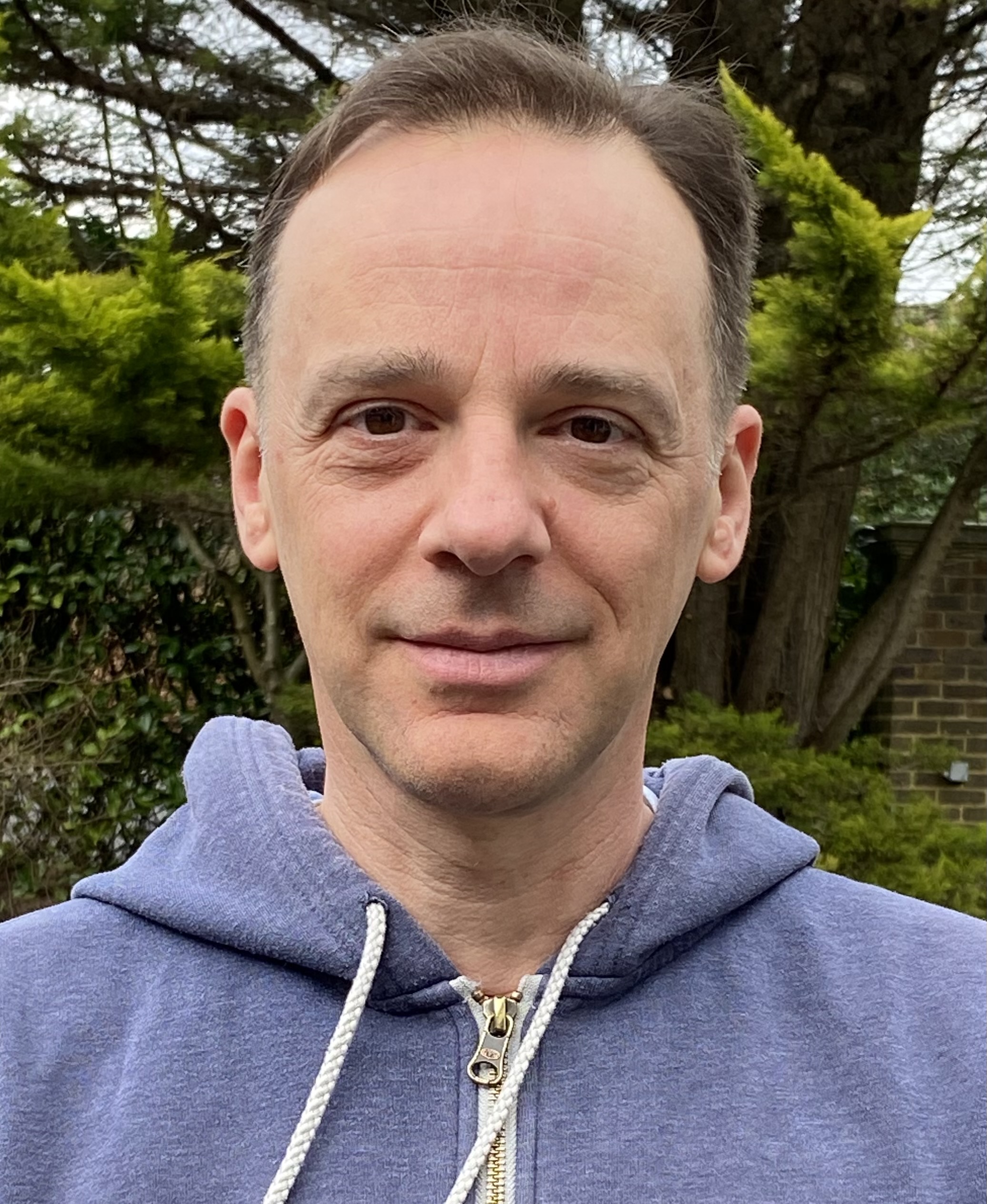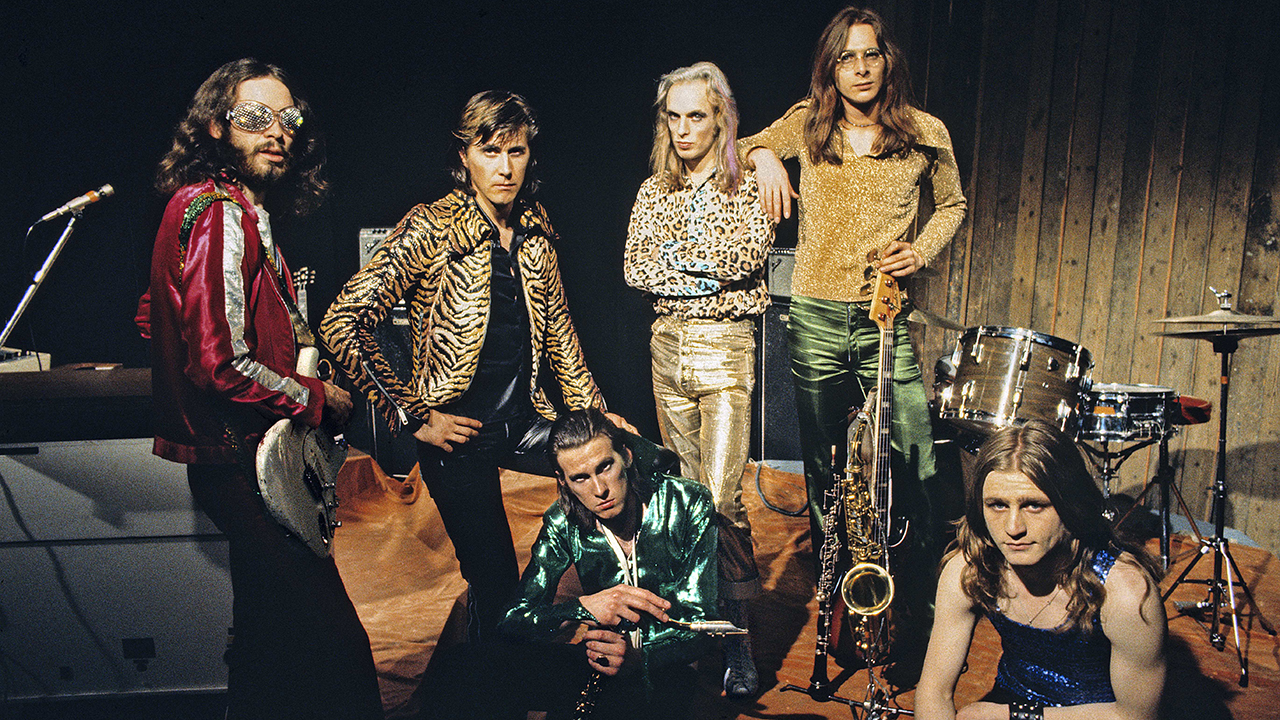Spock's Beard: The story behind Brief Nocturnes And Dreamless Sleep
Spock’s Beard's first album with Ted Leonard on vocals was always going to divide fans. Here, the band share the story behind 2013's Brief Nocturnes And Dreamless Sleep

Cast your mind back over 30 years. At the time, progressive rock was a couple of decades past its heyday. After a brief revival in the 1980s, spurred on by bands such as Genesis and Yes releasing overtly commercial material, by the early 1990s prog was once again relegated to being a minority interest at best, or the object of scorn and downright opprobrium at worst. While a handful of bands worldwide sought to keep the progressive flame alive, the prog scene in the United States was decidedly moribund.
Against this unpromising backdrop, brothers Neal and Alan Morse quietly founded Spock’s Beard in their native Los Angeles in 1992. Their expectations of success for their band were not high. In fact, had they been higher, the brothers might have selected a name for their band less flippantly. In any event, the band’s 1995 debut album The Light was released without fanfare, initially on a small American dedicated prog label.
But as it transpired, The Light, comprising three epics and one shorter track designed for live encore purposes, immediately proved to be something truly special, with vintage progressive sounds married to some hugely catchy music that contained both immediacy and depth.
Over the course of the next seven years, Spock’s Beard – driven tirelessly by vocalist/keyboardist Neal Morse – followed a steady upward trajectory, releasing five further increasingly accomplished studio albums and touring extensively. They also benefited from the patronage and support of Dream Theater and in particular the latter’s drummer Mike Portnoy. Indeed, seeing the band play an incendiary June 2001 show in the main hall at the much-missed London Astoria in support of the previous year’s fifth album V, it seemed that the quintet were on the verge of leading a new vanguard of prog bands back into the rock music mainstream.
However, as recounted back in issue 17 of Prog, a year later Morse stunned both his bandmates and their growing fanbase by announcing his departure shortly after the completion of Spock’s Beard’s sixth album Snow. The band’s solution was to “do a Genesis” and promote drummer Nick D’Virgilio to frontman. And so began the second era of the band, yielding four studio albums showcasing a different sound to those featuring Neal Morse, but nonetheless thoroughly enjoyable in their own right.
In a further parallel with Genesis, history then repeated itself in 2011 with D’Virgilio’s announcement that he too was leaving Spock’s Beard after almost a decade fronting the band, culminating in a short autumn 2010 tour to promote the band’s 10th album X. It seemed ironic that D’Virgilio should choose to exit the band – to focus on drumming for Cirque du Soleil, although now he also finds time for Brit proggers Big Big Train – just when they appeared on the cusp of regaining some of the momentum lost following Neal Morse’s departure.
“We didn’t see it coming,” states guitarist Alan Morse candidly of D’Virgilio’s exit. It’s no surprise: X itself seemed to show Spock’s Beard recovering lost ground. “The last album was really well received and people thought that we had found our own place and that we were doing really well,” adds bassist Dave Meros.
Sign up below to get the latest from Prog, plus exclusive special offers, direct to your inbox!
Having weathered the loss of the iconic Neal Morse, Alan Morse, Meros and keyboardist Ryo Okumoto found it easier to deal with D’Virgilio’s resignation from the band. “We survived probably the worst departure first when Neal left because it was his band,” Meros explains. “He wrote all the songs and he sang and played. When he left, that was when we probably should have thrown in the towel but we didn’t, so this one was much less of an adversity to overcome.”
Spock’s solution was to recruit Enchant vocalist Ted Leonard and co-opt long-serving live drummer Jimmy Keegan to round out the third incarnation of Spock’s Beard. And as such, Meros is bullish about the future, saying, “I think this band has the potential even to exceed the previous line-up. Let’s see what happens but we are all pretty excited about it. There is a certain amount of magic involved in various combinations of people and what they bring to the table.”
In the case of Leonard, he appears to be relishing playing a wider role within Spock’s compared to Enchant, pointing out that the latter (who are slated to be returning with their own new album later this year, a decade since 2003’s Tug Of War) affords him less input than the former, being dominated by guitarist Doug Ott.
During his leadership of the band, the writing on Spock’s Beard’s albums was dominated by Neal Morse. The D’Virgilio-fronted version of the band saw the writing across four further studio albums diversify to include contributions from all members of the band, plus long-time close associates John Boegehold and Stan Ausmus. New album Brief Nocturnes And Dreamless Sleep features songwriting contributions from Alan Morse, Meros, Leonard, Ausmus and Boegehold, but intriguingly also sees the partial return of Neal Morse, who co-wrote Waiting For Me with brother Alan and Afterthoughts with Alan and Leonard. As a result, the album features a mixture of styles old and new, but all unmistakably Spock’s Beard in flavour.
As Meros comments, “Ted’s done a lot of writing on this album and there has been input from everyone.” And with that comes an expectation as to the album’s likely reception. “It sounds like it could be a little bit more across-the-board acceptable. If you go back to our records, most of them are different from the last one.”
Rather than deliberately striving to create an album that harked back to the sound of the old Spock’s Beard but also had a fresh approach, the band claim that the sound was more happenstance. But with Neal Morse involved in the writing, they confess to a concern that his contributions might render the album “a bit retro Beard”.
While there are plenty of bands who constantly look over their shoulders to try to recapture former glories, Spock’s Beard are adamant that Neal’s writing contributions are not a precursor to a fully fledged return. Keegan in particular has little interest in seeking to return to the band’s former glories.
“I’m fascinated how the concept of Neal returning to the band comes up,” he says. “With all due respect to Neal, he is amazing and he had such a brilliant history with the band. But tomorrow is always a new day at the same time and why would a band constantly look backward? I’m not saying there isn’t something he could offer the band creatively like he has done. And it’s not as if tomorrow we couldn’t talk and go, ‘Hey, that would be fun,’” referring perhaps obliquely to Neal’s fleeting guest appearance with the band on stage at 2011’s High Voltage festival.
Ted Leonard puts it very succinctly, saying, “I don’t want to be the Gary Cherone of Spock’s Beard!” referring to the muted reception afforded to the former Extreme vocalist who succeeded Sammy Hagar in Van Halen. However, he’s been readily accepted by fans into the ranks of the band.
That said, both Alan and Dave acknowledge an initial fear that Neal’s involvement in the writing on Brief Nocturnes And Dreamless Sleep could prove a double-edged sword. “I was really worried about one of the songs, Waiting For Me,” Alan says. “I’ve completely eaten crow on that because it turned out to be one of the best songs on the CD. So it just shows how much I really know!”
“There are big parts of that song that sound like songs you could pick out from the old Spock’s Beard,” Meros continues. “I was concerned that it could go either way – either people would love it or they would just hate it. But then we put on our parts and the song developed and the first time I heard the song with most of the final tracks on it, it was like, ‘Holy shit!’”
Neal Morse’s involvement in their new album was not the only reunion. Having chosen to strike out on their own before releasing X through the Mascot label, Brief Nocturnes And Dreamless Sleep marks a return to the InsideOut record label. InsideOut had been the band’s home from their earliest days but had found itself embroiled in the insolvency of distributors SPV. But with those problems in the past, a return to InsideOut, with its now much more selective roster of bands, beckoned.
“Primarily they have a stronger presence in the United States through their affiliation with Century Media. It was a combination of that and being really old and good friends with Thomas Waber at InsideOut,” Meros explains. “InsideOut had gone through a rough patch and they seemed to have resolved some old business problems. One good thing about Century Media is they have a big office in Los Angeles, just probably 10 minutes from Ryo’s house, so the proximity of their main office is attractive too.”
As such, 2013 finds Spock’s Beard in rude health with Brief Nocturnes And Dreamless Sleep and a 17-date European tour in May to promote it. Spock’s Beard are well and truly back.
This article originally appeared in Prog 35.
Nick Shilton has written extensively for Prog since its launch in 2009 and prior to that freelanced for various music magazines including Classic Rock. Since 2019 he has also run Kingmaker Publishing, which to date has published two acclaimed biographies of Genesis as well as Marillion keyboardist Mark Kelly’s autobiography, and Kingmaker Management (looking after the careers of various bands including Big Big Train). Nick started his career as a finance lawyer in London and Paris before founding a leading international recruitment business and has previously also run a record label.

